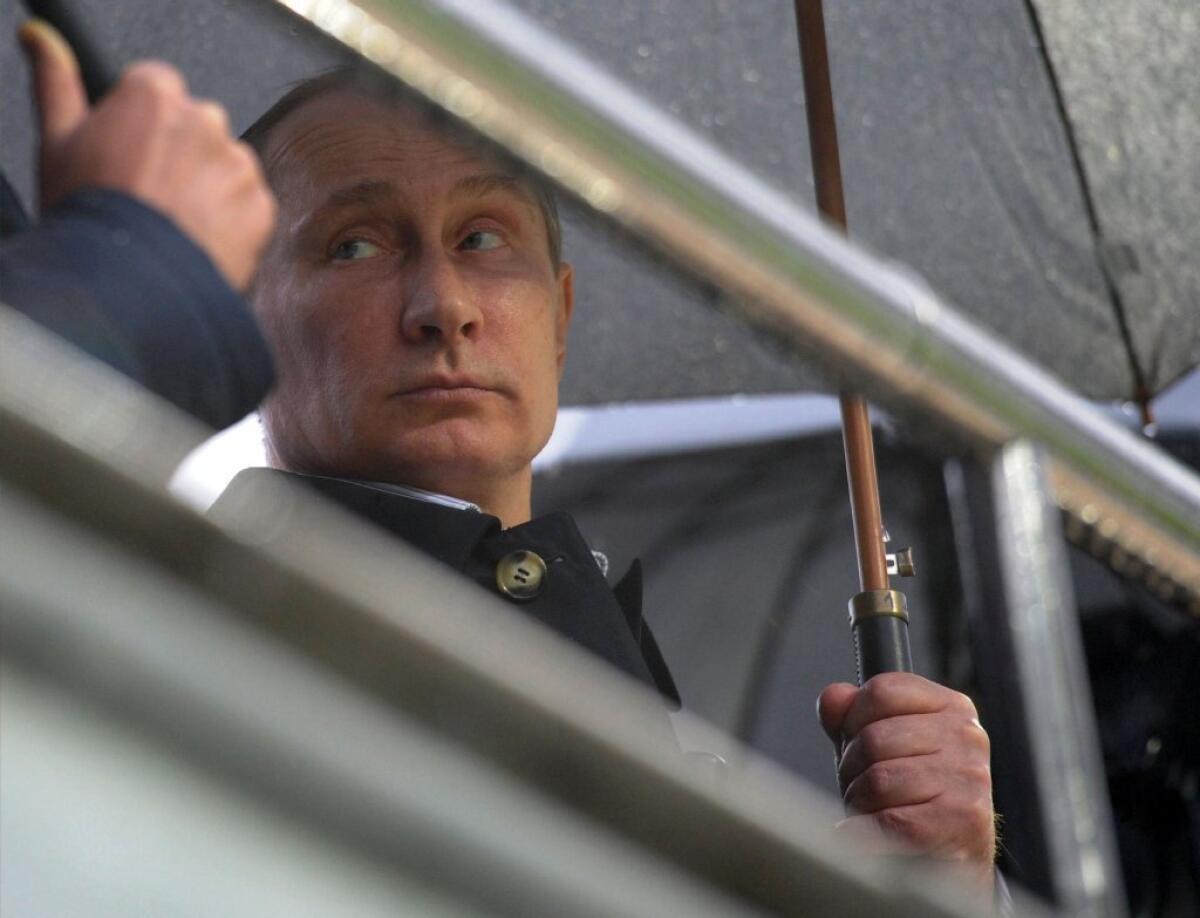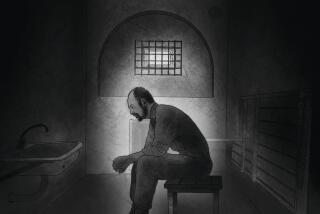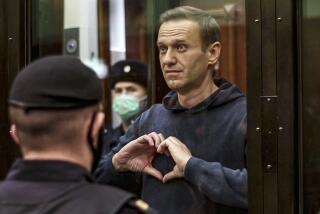Fighting the good fight in Russia

I recently found myself in a Moscow court explaining why the civil rights group I run would not be registering as a “foreign agent,” despite being ordered to do so by prosecutors.
According to Russia’s pernicious “foreign agent” law, which President Vladimir Putin rammed through the parliament in 2012, any advocacy group that receives foreign funding and engages in political activity must apply to be included in a special registry of foreign agents. The definition of “political activity” is so broad that it could cover any work in defense of the public interest.
Why won’t our group, Public Verdict, register? Because we aren’t “foreign agents,” a term with a single, unambiguous meaning in Russia: a spy, a traitor to the Motherland.
But we are taking a risk. Under the law, if an organization refuses to register, the group may face heavy fines (up to $17,000) and its activities may be suspended. As director, I could go to prison for two years.
Public Verdict is not alone, though. Russian civil society organizations have presented a united front against a law meant to demonize and silence them. Not a single rights group agreed to stigmatize itself by adopting the shameful and false label of foreign agent, and all the leading nongovernmental organizations have made strong public statements condemning the law.
But the government hasn’t backed down. This spring, prosecutors throughout Russia conducted punitive and aggressive inspections of hundreds of organizations, issuing dozens of warnings along with direct orders to register within 30 days.
Public Verdict received such an order: Either stop working or register as agents. We believe that this is fundamentally wrong. For 10 years we have been helping victims of abuse by law enforcement officers, handling more than 500 cases and winning more than 100 in court. More than 100 law enforcement officers have been punished for torture and other crimes, and dozens of torture victims have benefited from our psychological rehabilitation program.
Police torture and impunity for abuse of power are systemic problems in Russia. So, in addition to handling individual cases, we also advocate for comprehensive law enforcement reform.
Most of our cases go like this: A man is arrested and taken to a police station, where he is beaten and tortured. Mostly, police officials torture to force a confession, but sometimes they do it simply to project power. Next, more often than not, the man is released or taken away in an ambulance. But because government law enforcers typically don’t aggressively pursue torture complaints, our lawyers must do the bulk of the investigative work, interviewing witnesses and building evidence.
It’s obvious to the people who come to us for help that our work is in their interest and in the wider interest of the country as a whole. The prosecutor, however, considers our actions to be political activity. The way they see it, trying to eradicate torture and ensure the right to a fair trial in Russia is in the interest of foreigners but not of Russians. We cannot agree with this absurd approach, and we will not register as something that we are clearly not. It is unclear whether that argument, which we used in court, will carry the day.
As we’re fighting the prosecutors in court, we continue to receive a flood of complaints. Just two weeks ago, a victim of torture by electric shock approached us. His persecutors had demanded that he confess to a theft. He wants his torturers held to account, but investigators refused to initiate criminal proceedings. We will make sure his case goes to court. Until we see that people no longer need us, we will continue to fight for our right to lead this work without degrading ourselves with infamous and false labels.
We are not alone in this struggle. In the approach to the February Sochi Olympic Games, the international community has put a great deal of pressure on our government, demanding that it allow independent groups to operate freely. If this support continues after the Games are over, we can hope for victory. Our next court hearing is due in February. Wish me luck.
Natalia Taubina is director of the Moscow-based human rights group Public Verdict.
More to Read
A cure for the common opinion
Get thought-provoking perspectives with our weekly newsletter.
You may occasionally receive promotional content from the Los Angeles Times.






